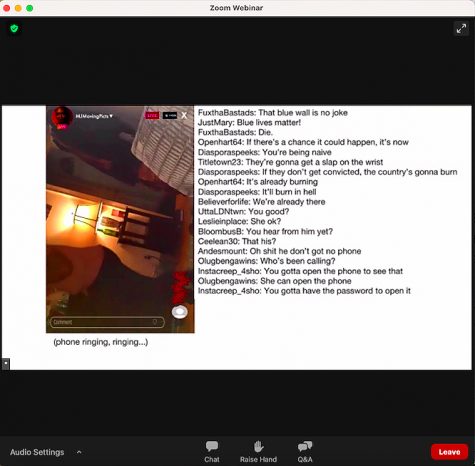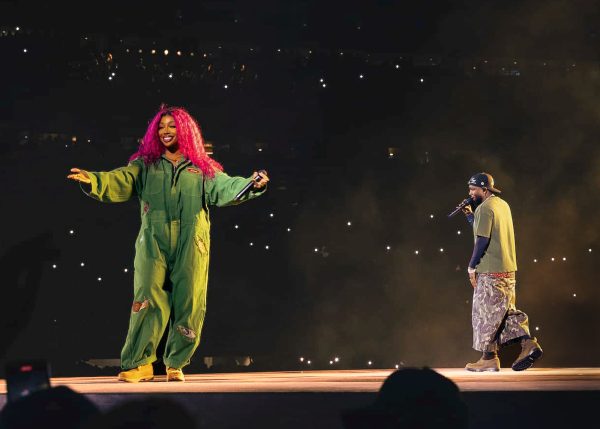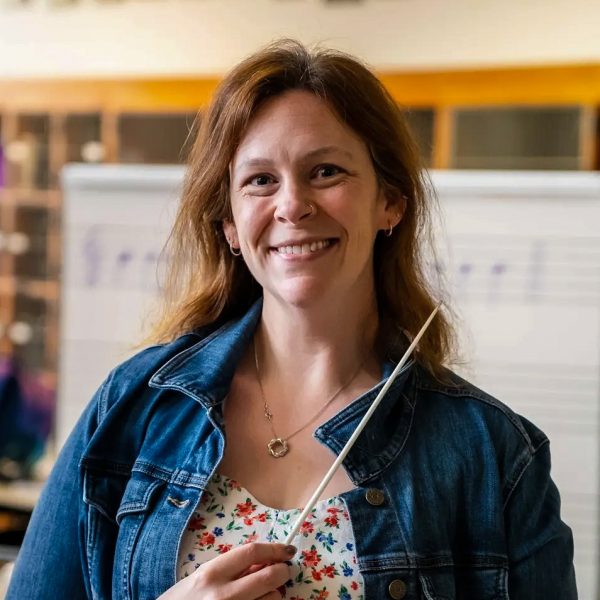New Repertory Theatre Has the Key to Surviving Lockdown

For decades, Boston’s New Repertory Theatre has been bringing live entertainment to Greater Boston, and this year, despite COVID-19, was no exception. The theater provided audience members with a “Showstopper” virtual performance from November 27 through December 13. It comprised two one-woman shows hosted back-to-back on a Zoom webinar, lasting about one and a half hours.
The first show, titled “A Very Herrera Holiday,” stars Amanda Figueroa as Emma Herrera, a fictional influencer who runs a craftsy YouTube channel. The video shows her festive holiday projects, including her tio’s favorite Christmas drink recipe and clever “butcher paper” wrapping for gifts.
All is not, however, as it first seems. Herrera’s lighthearted commentary is interrupted periodically by sinister descriptions of life with her husband that include references to him in the past tense before Herrera quickly corrects herself. In her ramblings, Herrera describes her friend Lauren who simply felt “like family” from the moment they met as she packages a gift for Lauren’s daughter, Kaylee, who is “so cute she makes [Herrera] want to die.”
By the end, Herrera has blood-red ink dripping down her hands after divulging her husband, who seems to have taken off to an illicit life with Lauren. And for no particular reason (unless you count the severed hand she accidentally pulled into view from behind her laptop), she will need to take his place playing Santa for Kaylee this year.
The second show, “[keyp-ing],” follows Black freelance producer, Monica Jenae, played by Jasmine Rush, who is hosting an Instagram Live session with scripted comments from “viewers” that appeared on her screen. Jenae describes a recent requirement by a White client to get COVID-19 tests for herself and her all-Black crew before shooting.
The problem is that free results for the tests would cause Jenae and her crew to arrive too late for the demanding client who cites the “contract” Jenae signed as the reason she has to proceed so quickly. Jenae explains to the audience that her crew simply does not have the money to pay for faster results.
As of three years ago, the net worth of an average Black Bostonian was a scant eight dollars, so for her client to demand they pay for tests is insensitive to the barriers unique to Black residents. The only tests Jenae could locate are in a neighboring town, Norwell, which she explains with exasperation, is 97 percent white. She also reveals that her crew and husband are there getting results as she speaks.
In the end, with a frantic burst of realization, she notices it is well past the time when they should have returned. She rushes out the door to go to Norwell herself and track down the missing persons. It leaves the audience to wonder if we have just watched yet another tragic victim of America’s racially charged violence.
Behind the scenes of this debut virtual production, the theater was adapting and sacrificing to fit the show on a screen. Communications director Jaclyn Dentino explains, “postponing productions and leaving artists out of work has been extremely difficult,” but was necessary because of the limited schedule and cast of the shows. She continues that “not being in the same room together […] certainly has taken a toll on some of us in terms of our mental health” and has made the process even more difficult.
Despite the struggles of turning live entertainment online, sales associate Alexis Rappaport notes that the new format had some perks: “we’ve been able to connect with so many people that we wouldn’t be able to in person.” Citing one audience member from Scotland and another from Vancouver, Canada in attendance at the last showing, she explains that “barriers to access […] came down throughout this production, so [the theater has] definitely decided that […] no matter what the future holds we’re going to keep virtual theater around.”
The theater hopes this experimenting will allow them to export such productions as their educational shows geared toward students and let schools rent their plays for a “virtual field trip” to the theater.






